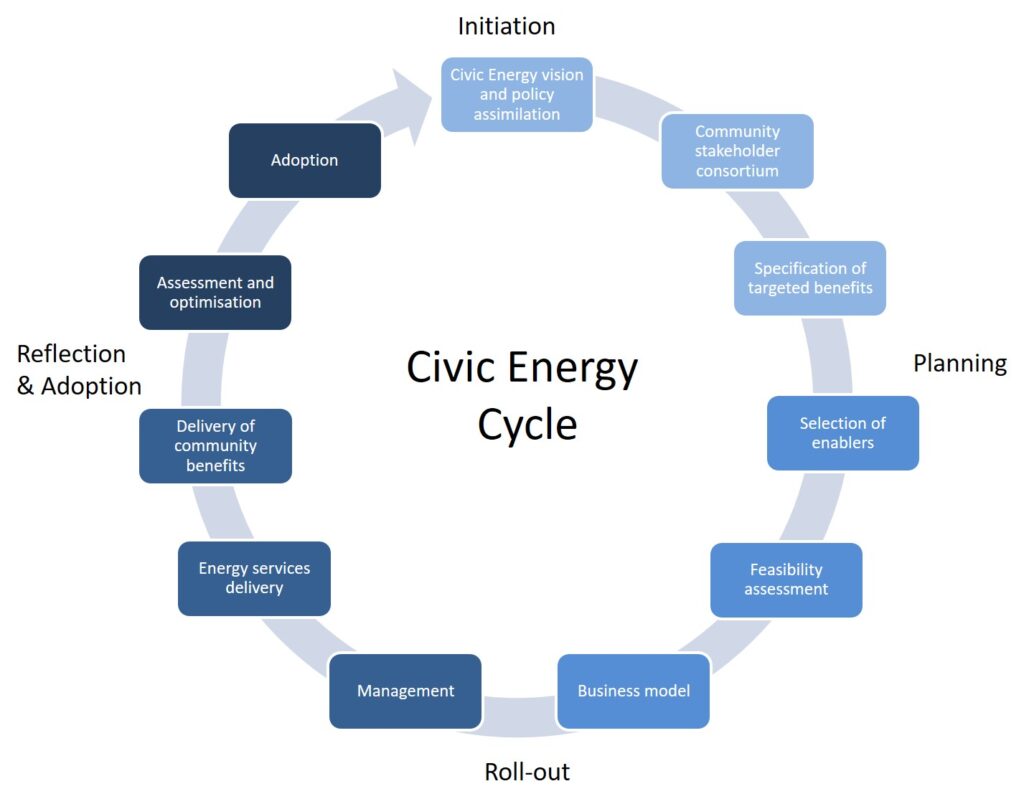The main tool behind the project’s strategy is the Civic Energy Cycle, a systematic process management approach to facilitating community-driven green energy initiatives that benefit the local residents.

The commitment to an energy transition policy, designed to replace the fossil fuel based economy by a renewables-based, low-carbon economy, has been widely proclaimed by the EU Commission (Renewable Energy Directive, 2030 Policy Framework for Climate and Energy),national governments (e.g. the German Energiewende) and the North Sea Commission (NorthSea Region 2020). Even more ambitious transition targets have been set in a number of regional energy plans featured in the project, e.g. Energi2020 strategy/ Ringkøbing-Skjern Municipality, 2020 Route map for Renewable Energy in Scotland, Masterplan 100% Klimaschutz/Osnabrück.
Although civil society so far has only been peripherally involved in energy production, civic energy has already become the key driver of the transition to renewables The EESC European Economic and Social Committee, defines civic renewable energy as “decentralised renewable energy generation owned (at least 50%) or operated by citizens, local initiatives, communities, local authorities, charities, NGOs, farmers, cooperatives or SMEs, creating a stream of local value that can stay within the region”. Civic energy has multiple benefits to offer:

The project initiative has identified civic energy as the key enabler of the greening of the energy base of the North Sea economy. We aim to make sustainable growth happen. The project work plan is driven by transnational cooperation and clear objectives: